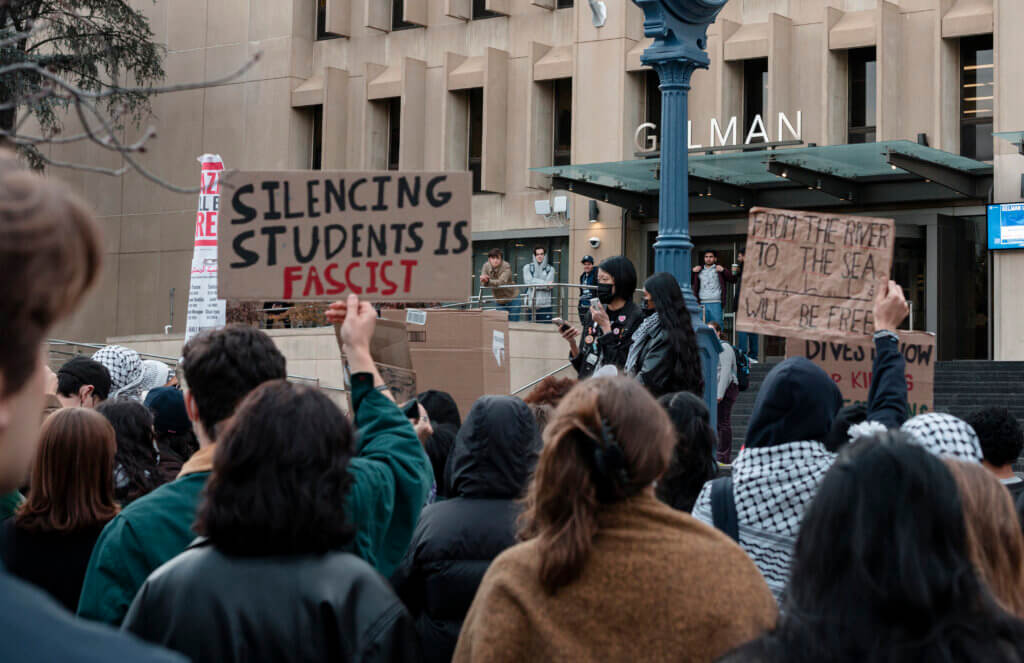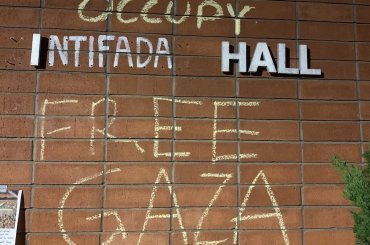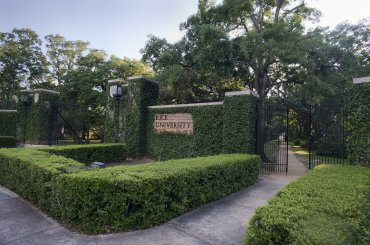Academics have launched a new national network to advocate for Palestine.
Faculty for Justice in Palestine (FJP), which was formed in solidarity with Palestinian students, already has 80 affiliate groups across college campuses.
“After the genocidal war on Gaza began, groups of academic workers began to organize on campuses nationwide to support and protect students from the immediate onslaught of harassment, discrimination, and punishment,” the group’s facilitator Sherene Seikaly told Mondoweiss. “With 80 affiliate groups on campuses across the country, the Faculty for Justice in Palestine (FJP) national network is committed to the cause of Palestinian liberation through education, advocacy, and action. FJP endorses the principles of BDS (Boycott, Divestment, Sanctions) and supports the fundamental right of Palestinians to self-determination and legal equality, and to return to their indigenous homes and lands.
“The time is now, Stop the Genocide, All Eyes on Rafah, Free Palestine,” she added.
Many of the chapters released open letters to mark their founding.

“We raise our voices in defense of our students, as well as students around the United States, who are under threat of censure and reprisal for taking political stands that are moral, reasonable, and valid in a free society,” read Princeton’s.
“We feel that this moment is comparable to others in history — the rise of German fascism in the 1930s, the debate over slavery in the U.S., the U.S. war in Vietnam — when people of good conscience must speak out, especially those of us affiliated with a university that touts its long-standing ‘commitment to global engagement,'” said Indiana University’s.
Last month members of Penn Faculty for Justice in Palestine organized a die-in on campus to draw attention to the thousands of Palestinians who have been killed by Israel.
More than 28,000 Palestinians have been killed, and almost 68,000 have been wounded since Israel’s assault on Gaza began in October.
Students protesting the carnage have consistently been targeted across universities, where pro-Palestine groups have been suspended, and individuals have faced academic repercussions. The group Palestine Legal says its received more than 1300 reports of such repression and almost half of them have come from college campuses.
Lawmakers and pro-Israel groups like the Anti-Defamation League (ADL) have even pushed for terrorism investigations into schools or student organizations over support for Palestinian liberation.
In recent weeks, Columbia students were targeted in a chemical attack, criminal charges were dropped against Northwestern University students who made a parody newspaper to protest Israel’s attack, Harvard Law students were reprimanded for phone banking in support of a ceasefire from a school building, and MIT’s Coalition Against Apartheid organization was suspended by the administration for holding a protest “without going through the normal permission processes.”
FJP national network secretary Andrew Ross told Mondoweiss that the coalition was built to have a lasting impact beyond the current moment and looks to ultimately expand its reach beyond the United States.
“So far, the network has been successful at getting people organized and connected with each other locally,” said Ross. “For folks who are regionally isolated and don’t have a critical mass on their campuses, being affiliated to a national coalition has been really important. FJP is being built, patiently, for the long term, so that a structure is in place beyond the immediate crisis in Gaza. Working to support SJP and other student groups under attack has been key to all our efforts. Over time, the aim is also to form relationships with counterparts in Palestine and elsewhere.”



Academics might help facilitate debate around equality or around independence.